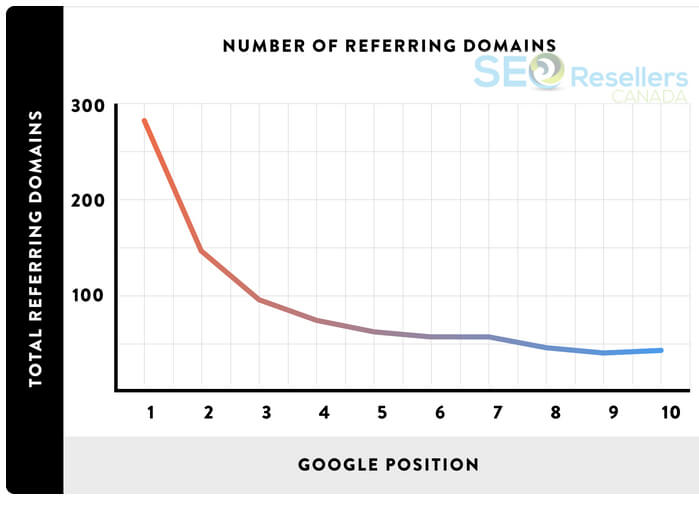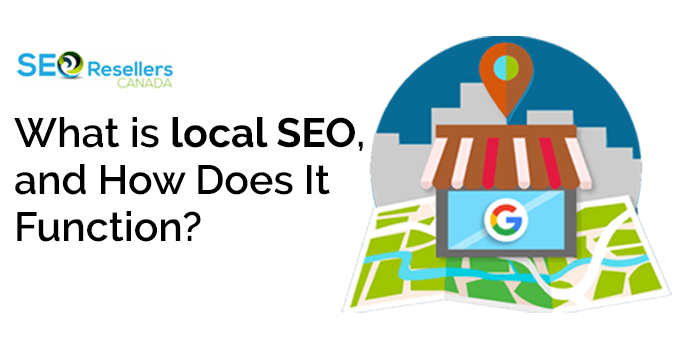Backlinks are among the most important tools you’ll ever use to optimize your web presence.
Scratch that.
Backlinks are the most important tool you’ll ever use to optimize your web presence. On the other hand, backlinks and backlinking are words that Microsoft Word doesn’t recognize yet.
When you type the words out, it draws that wavy red line under them to tell you these words don’t exist in its dictionary.
The same can be said about most people starting their businesses online. When they hear the word for the first time, they make up all sorts of definitions for it themselves.
So, we’ll begin with definitions and then give you all the crucial information you need to understand backlinks and what makes them so important.
Once you have carefully read this article, you’ll be able to start working on your backlinking strategy with confidence.
1- Defining Backlinks
To define the term, we looked it up in multiple variations on trusted online dictionaries, only to find most of them didn’t recognize the word either (You disappoint us, Merriam-Webster and Cambridge).
Don’t lose hope, though. Oxford dictionary defines the word backlink as follows:
“An incoming hyperlink from one web page to another website.”
Wikipedia also has a definition on its dedicated page for the word. It says:
“A backlink for a given web resource is a link from some other website (the referrer) to that web resource (the referent). A web resource may be (for example) a website, web page, or web directory.”
In simplest of words, a backlink “is any incoming link to a website from any other website,” which is how Technopedia defines it.
That should settle it. The term is fairly easy to understand: a website is given reference on another website with a hyperlink so the reader can go to the linked page.
An even simpler way to recall what backlinks mean is to just remember that these are the links that lead back to your page.
2- Understanding SEO
To understand why backlinks are so important, you need to know why the technique was ever needed.
SEO, which stands for search engine optimization, is the mix of strategies and activities that you adopt to rank higher on SERPs or search engine results pages.
Ranking on top of the search results for important phrases and words people use for searches (keywords) on search engines – such as Google, Yahoo, or Baidu – is the ultimate purpose of SEO.
The higher your website ranks, the more visitors you can expect. The more visitors you get, the higher number of them may convert and purchase your product or service (Note: there are several other factors that are important in converting a visitor).
That’s how the search economy works. Users look up keywords on a search engine, the search engine gives them a list of suggestions, and most users click on one of the three top suggestions.
3- The Hotel Metaphor
Consider this metaphor. When your flight lands in a new city, you ask the information desk at the airport to book you a hotel.
They start giving you names without missing a beat. The first quality they tell you about the names they pick is these are quite close to the airport.
You thank the desk attendant for their expert advice, take a list of a handful of names and addresses, and take a taxi to the first address.
Now, when you reach the hotel, you find it’s rather shabby. You don’t like what you see.
So, you take a taxi and go to the second address on the list. It looks like a better place, and you book a room for the night.
While you definitely understood the first part of the metaphor, the other bit can also be explained easily.
You see, when a user visits the search engine suggestion on the very top, they might not like it for many reasons (It could have spelling mistakes, which would simply put off a visitor.
It could have a repulsive design. Et cetera). So, you hit the back button on your browser and then visit the second suggestion on the SERP list.
4- The Need for SEO

This is where the necessity for good SEO comes from. Once more and more users refuse to stay on that top suggestion for long, the search engine stops putting it on top since its users don’t appear to like the result.
As these changes may occur time and again, there’s a constant need for all websites competing on that keyword to work on improving their visitors’ experience.
That’s what SEO is. A combination of all tactics you use to make your website rank higher on SERPs. Hence, you should do whatever it takes to establish it as an authority and the search engine’s top choice for that keyword.
As you can see in the image above, SEO is complex and consists of several pertinent activities.
5- Back to Backlinks

Backlinking is one of the activities that you need to master if you’re ever going to survive your search competition and get to the top of your target keywords’ SERPs.
If you called backlinks the backbone of SEO, we wouldn’t really mind it. Why?
Well, because backlinks are a very important factor that search engines use for determining which of the search results are more relevant than others and should be suggested over their competition.
Let’s show you exactly how important backlinks are when it comes to getting high rankings in search results.
In a recent study of a million websites, Backlinko found backlinks are the strongest indicator of a website getting higher rank in Google’s SERPs (Note: Google currently holds around 80% of the global web search market).
As the image above shows, the higher number of backlinks leads to higher Google ranks for your website.
In a Q/A session in March last year, Andrey Lipattsev, part of Google’s Search Quality team, explicitly said the number of backlinks is the biggest factor for Google’s ranking algorithm after your website’s content.
6- Why are backlinks so important?
It’s quite simple once you get to think about it. Backlinks are referrals other websites are giving toward your website.
These websites are smart enough to suggest other web pages only when the content there is good for their readers. If they point their readers to poor, useless content, they’ll lose their audience (and their own rank).
So, just as search engine users’ number of visits to a website tells the search engine the website must be ranked higher, other websites linking to it also tells the search engine the content there must be good; so, the website should be ranked higher.
7- Ways You Can Earn More Backlinks in 2020
If you want to get more traffic to your website, you will need to boost your search engine rankings. One of the best ways to rank well and to also generate more organic traffic is by gaining backlinks from all the credible websites that are in your industry.
However, gaining backlinks from e-commerce businesses and big-name publications can take a lot of time and require a lot of effort. Success often involves networking, content marketing, and using the right tools.
If you’re looking to diversify your backlink profile in 2020, then here are some tips on you how you can get more hyperlinks pointing towards your website.
7.1- Create Link Round-Up Posts
Link round-up posts tend to feature the opinion of industry experts, and they can generate a lot of traffic and for a good reason.
We’re all looking for expert insights and tips that help us succeed in our hobbies, careers, and business endeavors.
By providing a compilation of tips and featuring them on your website, you will be presenting useful information to your audience while providing additional promotion to the people you include.
An additional benefit of publishing round-up posts is that the experts you feature will re-share and even backlink to the post from their own websites, which will add valuable signals to your page.
Even if you don’t have the time to put together your own round-up post, it is incredibly easy to get featured in other people or brand’s compilation.
Getting featured in link round-up posts is a simple way to help you get a backlink from a reputable site, as it helps improve your discoverability, and boosts brand awareness.
A good tip is to find publications in your industry that create round-up posts and start following them to identify potential opportunities.
7.2- Give Interviews
When it comes to getting press for your business, getting published on more sites will always be better.
But getting exclusive promotions often takes a lot of time and money.
One way you can get ahead is to get in touch with journalists through HARO (Help A Reporter Out). HARO is a free service that enables users to get in touch with journalists seeking sources for their upcoming stories.
Rather than you having to seek out relevant journalists yourself, a list of opportunities will come to you – all you need to do is reply to their queries for a chance to get featured and get a mention or backlink to your website.
Some of the media outlets which use HARO are The New York Times, Mashable, TIME, and Reuters, among many more.
7.3- Guest Blogging
Guest blogging can be a great way to build backlinks – but it’s often easier said than done.
You may have a hard time getting guest posts published on reputable sites, as they get a ton of requests.
And even if you pitch a good topic, you can end up waiting for months to get a reply from the website’s editorial department, as they manage their various priorities.
Instead of sending pitches that’ll be left unanswered, another option to consider is to connect with skilled authors on Link-able.
The platform claims to have a stable of elite authors with great portfolios, people who have already been published on many top sites, including Forbes, Entrepreneur, and The Huffington Post.
Utilizing these established writers will make your pitch more appealing, increasing the likelihood of being published.
You can post a project on Link-able, describing your website, and your backlink needs.
Authors who write about similar topics and industries can then send you applications offering to build relevant links.
Since these writers already have connections, they can more successfully get in touch with editors and get guest posts published on your behalf.
7.4- Connect with Clients
You don’t necessarily need to look too far to get reputable backlinks. You can also connect with clients who have well-established websites and digital presences, and get guest posts published on their blogs.
This will help you get backlinks from their website/s, and they’ll also get free, quality content in return. That’s a win for both sides.
7.5- Post Case Studies and Industry Statistics
Rather than creating backlinks by reaching out to websites, you can also get the links to come to you instead.
Keep in mind that content creators often link to statistics and research-backed case studies.
If one of your blog posts is awesome and jam-packed with original, data-driven insights, then you’re increasingly likely to get others linking back to it.
This is why creating case studies can help you gain more visibility in your niche and provide more opportunities for backlinks.
7.6- Monitor Your Competitors
You should also consider monitoring your competitors’ mentions in forums and social media.
While you can easily stalk your competitors’ mentions on Twitter, you can use tools like Mention to get notifications about broader online conversations.
If a customer has a query about your competitors’ product, you can reply first and use this opportunity to promote your products instead.
This technique will help you get potential customers to consider your product, and increase your chances of earning backlinks too.
7.7- Connect with Experts on Facebook Groups
There are Facebook Groups for everything, and you’re going to come across a few of them that are related to your business.
You can join Facebook groups in your niche or industry to connect with bloggers and marketers. You shouldn’t limit yourself even if you can reach out to these people through Facebook posts or messages.
Add value to the group by sharing relevant industry trends and insights. You can even share your own content – but always ensure it’s of high relevance to your audience.
By connecting with marketers or industry professionals, you may get opportunities to get more backlinks and grow your customer base.
8- Conclusion
When you’re constantly reaching out to get backlinks, and constantly waiting for replies, it’s easy to feel hopeless.
However, there are ways in which you can generate backlinks by trying strategies like this, which most marketers simply aren’t using.
Instead of blindly reaching out to websites, create quality content that people will want to link to.
Rather than creating promotional blog posts, seek interview opportunities, and participate in link round-up posts.
Keep trying, and you’ll eventually start to see increases in your backlink profile – and SEO benefits as a result.
Editor’s Note: This post was originally published on July 16, 2017, and has been completely revamped and updated for accuracy and comprehensiveness.










